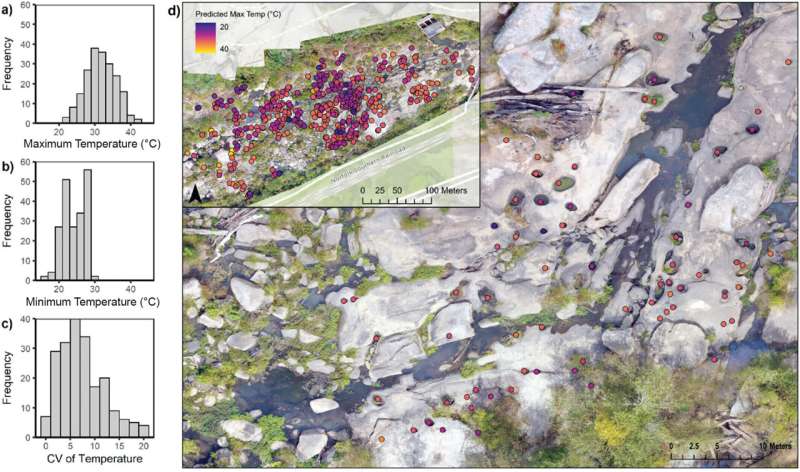This article has been reviewed according to Science X's editorial process and policies. Editors have highlighted the following attributes while ensuring the content's credibility:
fact-checked
peer-reviewed publication
trusted source
proofread
Hotter weather caused by climate change could mean more mosquitos, according to study

A warmer environment could mean more mosquitos as it becomes harder for their predators to control the population, according to a recent study led by Virginia Commonwealth University researchers.
As the cover feature in Ecology, the study—"Warming and Top-Down Control of Stage-Structured Prey: Linking Theory to Patterns in Natural Systems"—found that rising temperatures, often linked to climate change, can make predators of mosquito larvae less effective at controlling mosquito populations. Warmer temperatures accelerate development time of larvae, leading to a smaller window of time that dragonflies could eat them.
This means there could be nearly twice as many mosquito larvae that make it to adulthood in the study area. The researchers looked at riverine rock pools at Belle Isle along the James River in Richmond and found that warmer temperature pools had more aquatic mosquito larvae, even when their predators that naturally control the populations were present.
The native rock pool mosquito is not an important disease vector, but it is one of the few local mosquitos that doesn't have to feed as an adult to lay eggs. So the findings might apply to similar taxa, like the invasive Asian rock pool mosquito.
"We might see larger populations of everyone's least favorite bug, mosquitos. While the mosquito larvae we studied here [are] the North American rock pool mosquito, these findings likely apply to species of mosquito that do act as vectors for diseases like West Nile or even Zika virus," said Andrew T. Davidson, Ph.D., lead researcher on the study. He conducted the research through the Ph.D. program in VCU's Center for Integrative Life Sciences Education.
Predators help stabilize ecosystems and food webs, and the study looked at predator-prey interaction between dragonfly nymphs and mosquito larvae. Before field work, the research was rooted in concepts of thermal physiology and short-term lab experiments that yielded predictive models of the relationship between predators, prey and temperature in the field. The field study then tested the models in a complete natural environment.
The study builds on Davidson's earlier research published in Functional Ecology as well as work by lab mate C. Ryland Stunkle and the rest of the VCU rock pool team. The team also acknowledges the collaborative support of professor Brian Byrd of Western Carolina University's College of Health and Human Sciences.
More information: Andrew T. Davidson et al, Warming and top‐down control of stage‐structured prey: Linking theory to patterns in natural systems, Ecology (2023). DOI: 10.1002/ecy.4213
Journal information: Functional Ecology , Ecology
Provided by Virginia Commonwealth University




















